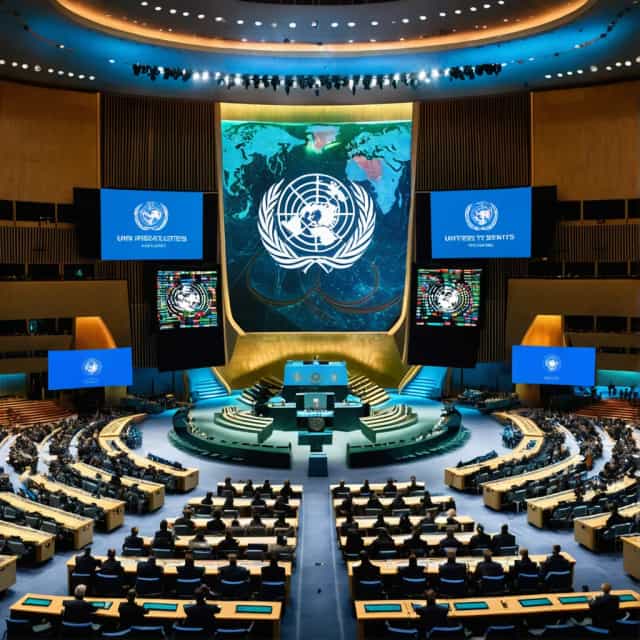
출처: Block Media
Vitalik Buterin Advocates Sustainable DeFi to Harmonize Profitability and Ethical Innovation
Vitalik Buterin, co-founder of Ethereum (ETH), has emphasized the critical role that low-risk decentralized finance (DeFi) protocols can play in sustaining both the economic and cultural integrity of the Ethereum ecosystem. In a blog post published on October 21, Buterin likened this opportunity to Google's revenue model, where profitability from search advertising enables the development of diverse innovations, as reported by Cointelegraph.
"Low-risk DeFi protocols can provide Ethereum with stable income streams, much like Google's search ad revenues underpin its entire business structure," Buterin explained. This underscores the importance of foundational financial mechanisms in supporting a broader, values-driven ecosystem.
Current Challenges: Cultural Tensions in Ethereum’s Ecosystem
Ethereum's ecosystem, known for its innovative potential, is currently dominated by applications like non-fungible tokens (NFTs), meme coins, and speculative financial instruments. While these drivers deliver high-yield returns, they often lack alignment with Ethereum's overarching non-financial and ethical goals. This disparity has fostered what Buterin terms "cultural conflicts" within the community, where profitability often overshadows principled development.
Striking the Balance Between Sustainability and Ethical Values
Buterin proposed a framework to realign profitability with Ethereum’s ethical aspirations. Drawing a parallel to Google's strategy, he pointed out that the tech giant leverages consistent revenue from search ads to fuel its diverse ventures such as web browsers, smartphones, and open-source AI. Similarly, Ethereum could use low-risk DeFi protocols to create a stable financial backbone for the ecosystem.
For example, protocols like Aave currently offer a secure investment model, providing interest rates of approximately 5% on stablecoin deposits using blue-chip assets like Tether (USDT) and USDC. Meanwhile, riskier investments yield over 10%. This type of reliable revenue stream, Buterin argued, could form the financial bedrock for Ethereum, enabling other applications to pursue innovative cultural and ethical objectives.
The Ethereum DeFi sector recently achieved a milestone as its total value locked (TVL) surpassed $100 billion for the first time since early 2022. This resurgence reflects increased confidence in decentralized finance, coinciding with U.S. regulatory discussions like the Digital Asset Market Clarity Act. A study by the DeFi Education Fund revealed that over 40% of surveyed Americans view strong regulations as an opportunity for DeFi growth, highlighting the sector's potential for mainstream adoption.
Ethical Innovation: Learning From Google’s Missteps
Buterin expressed optimism that Ethereum could exceed the ethical standards of traditional corporations like Google, which he believes have strayed from their original principles of open innovation. While Google's ad-driven success has fueled remarkable advancements, it has also led to significant compromises, such as extensive user data collection that conflicts with its initial ethos.
In contrast, Ethereum’s decentralized structure inherently prioritizes ethical decision-making. "Applications do not need to be the most innovative to generate revenue, but at the very least, they should not be ethically problematic," Buterin clarified. This long-term vision underscores Ethereum's potential to lead by example in integrating profitability with responsible innovation.
Expanding DeFi Horizons: From Flatcoins to Diversified Assets
Despite the promising prospects of low-risk DeFi, Buterin highlighted a notable concern: the reliance on U.S. dollar-pegged stablecoins. Many regions where DeFi has strong adoption are low-income countries grappling with inflation and currency instability, limiting the inclusivity of current offerings.
To address this, Buterin proposed the development of alternative instruments such as flatcoins—stablecoins tied to consumer price indices (CPI)—and assets pegged to multi-currency baskets. These innovations could enable Ethereum to serve a broader range of financial needs globally, particularly in underserved markets.
Vision for the Future: Sustainability Meets Cultural Integrity
As DeFi continues its global expansion, Buterin’s vision of a sustainable, ethics-driven Ethereum ecosystem offers a compelling blueprint for the future of decentralized finance. By anchoring the ecosystem in stable, low-risk financial structures while pursuing applications that align with societal and cultural values, Ethereum has the potential to rise beyond traditional financial institutions like Google.
By advancing this balanced strategy, Ethereum could not only strengthen its economic foundation but also establish itself as a leader in ethical blockchain innovation—creating a model that prioritizes both financial viability and cultural integrity in the evolving world of DeFi.










